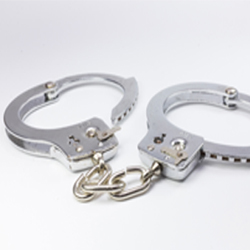California Ballot 2016: Pros and Cons of Props 62-67
Environmental Litigation
This is part three of our ongoing series, California Ballot 2016, summarizing each of the 17 state-wide measures voters will encounter on the November ballot. Click these links: Props 51-56, or Props 57-61 to catch up on the other initiatives. We’ll tackle some of the measures for Los Angeles County in a later blog.
This time, we’re going to jump out of order and summarize Prop 62 and Prop 66 one after the other, as both have to do with California’s death penalty – and Props 65 and 67 both concern plastic bag use.
Proposition 62: Justice That Works Act of 2016

Should the California death penalty be repealed? If Prop 62 wins voter approval, maximum punishment for criminals will be life imprisonment (instead of execution) without parole; be applied retroactively for current death row inmates; require those serving life to work while in prison; and increase victim restitution moneys accrued from prisoner wages.
Who’s For Prop 62?
Voices supporting Proposition 62 claim the death penalty system is broken – the 13 prisoners executed in California since 1978 cost taxpayers an average of $384 million per inmate because of constitutionally guaranteed appeals and special accommodations, which add up to 18 times the cost of life sentences. Prop 62 could save California $150 million per year by doing away with the death penalty.
Some of the bigger names and organizations supporting Prop 62 include Jimmy and Rosalynn Carter, Bernie Sanders, some former district attorneys and judges, as well as the California Democratic Party, California National Association for Advancement of Colored People, and California’s Catholic bishops.
Who’s Against Prop 62?
A group of opponents of Prop 62 are also endorsing Prop 66 (more on that one shortly). The Mend, Don’t End, California’s Death Penalty coalition agrees that the system for capital punishment is broken, but cite justice for victims’ families as a key argument for keeping a death penalty.
Though the names aren’t as big as those supporting 62, there seem to be a lot more opponents listed (just going by endorsement pages on the respective websites). Some of the opponents of 62 include former state governor Pete Wilson; a whole host of district attorneys; sheriffs’ associations in Los Angeles, Orange County, Long Beach, Sacramento, San Diego, etc.; taxpayer associations and others.
Proposition 66: Death Penalty Reform and Savings Act of 2016

Prop 66 aims to overhaul the system of capital punishment in California rather than repeal it, by incorporating procedural changes in the appeals process; requiring criminal appellate attorneys to take on death penalty appeals cases (many currently don’t); and requiring death row inmates to pay restitution to victims’ families.
Who’s For Prop 66?
Again, the Mend, Don’t End group is a primary supporter of 66 (see opponents of 62 above). Several district attorneys have come out with opinion pieces supporting 66, including this one by Michael Hestrin of Riverside. They claim Proposition 66 will ensure appeals are heard within five years of sentencing because defendants will be assigned appellate counsel immediately, give victim’s families much-needed closure faster, and that the potential $150 million annual savings to taxpayers is a mere drop in the state budget bucket.
Mark Peterson, D.A. for Contra Costa County, says the current appellate process for death row inmates could run 25 years because of frivolous delay tactics, which the reform measure will eliminate. This will result in hundreds of millions in savings.
Who’s Against Prop 66?
The No on 66 group say this initiative is poorly written, and based on capital punishment laws in Texas where innocent people were mistakenly put to death. Additionally, forcing appellate criminal defense counsel to take death row appeals cases will lead to further miscarriages of justice as many of these attorneys will be unqualified to fairly represent inmates. It doesn’t end with appellate attorneys – prisoners sentenced to death also need habeas corpus attorneys to examine the lawfulness of arrest and imprisonment in the first place – thus increasing the costs of putting the convicted on death row.
Opponents to 66 include several state organizations: Democratic and Libertarian parties, Federation of Teachers, American Civil Liberties Union, Academy of Appellate Lawyers, Catholic Conference, etc. Various prominent elected officials and individuals also oppose 66.
Proposition 63: Safety for All Act of 2016

Initially proposed by Lieutenant Governor Gavin Newsom, Prop 63 would prohibit the possession of large-capacity ammunition magazines and would treat ammunition sales like gun sales. Prop 63 would:
- Subject persons buying ammunition to background checks and a Department of Justice (DOJ) approval process;
- Require vendors to obtain licenses to sell ammo and report sales to the DOJ;
- Require reporting to law enforcement when firearms and ammo are lost or stolen – this applies to individuals as well as vendors;
- Require certain criminals to relinquish guns, using clear-cut procedures to do so;
- Require better reporting between the DOJ and the National Instant Criminal Background Check System
Note that some of the requirements and bans above are already written into California law. Governor Jerry Brown signed several gun bills in July – not long after the San Bernardino office party shootings in December and the Orlando nightclub shootings in June.
Who’s For Prop 63?
Those who support Safety for All say more than 33,000 people are killed because of gun violence in America, annually. The initiative closes some loopholes by making criminals prove they turned in their firearms; and that it addresses many firearm and ammunition concerns not related to the legislation passed in July. (See the Prop 63 Myths vs. Facts sheet for more info.) Prop 63 supporters also claim background checks have historically blocked 2.5 million potentially dangerous individuals from buying firearms.
Prop 63 has endorsements from U.S. Senators Dianne Feinstein and Barbara Boxer, California Secretary of State Alex Padilla, the California Democratic Party, Amnesty International, California Federation of Teachers, and others.
Who’s Against Prop 63?
Opponents to the measure claim there will be an extra fee for ammunition purchase background checks, out-of-state and mail order purchases of bullets will be banned, and private sales will be criminalized. Prop 63 opponents also say those who own large magazines will need to find buyers out of state or turn the magazines in to law enforcement. Additionally, the measure could force vendors to go out of business.
The Coalition for More Civil Liberties, a/k/a/ the California Rifle & Pistol Association, is spearheading the campaign against Prop 63. They are also supported by the National Rifle Association, the Firearms Policy Coalition, Concealed Nation, and others.
Proposition 64: Control, Regulate and Tax Adult Use of Marijuana Act (AUMA)

Should Californians 21 and older be allowed to use marijuana recreationally? This initiative:
- Exempts medical marijuana from taxes;
- Imposes a 15 percent state tax on recreational marijuana;
- Imposes a cultivation tax of $9.25 per ounce for flowers, and $2.75 per ounce for leaves;
- Allows for additional local taxes;
- Prevents large-scale businesses from cashing in on the crop for five years;
- Strictly regulates marijuana marketing; and
- Allows for resentencing or expunging records of those convicted of prior marijuana-related crimes.
In 2013, Governor Brown signed a law to legalize the growing of industrial hemp, but only if the federal government authorizes states to do so. Production has been banned by the feds since 1957 because it contains low levels (relative to marijuana) of tetrahydrocannabinol which is the chemical that induces the “high”.
Because of the federal ban, the U.S. imports hemp for fiber, food and fuel products. A handful of other states have already legalized cultivation. Prop 64 removes the condition re federal permission imposed in 2013.
Who’s for Prop 64?
The Californians for Responsible Marijuana Reform claim the state tax alone could generate $1 billion each year for California, and that both state and local governments will save $100 million by not having to pursue legal action against most marijuana offenders (the main exception being those driving while impaired). Most of the revenue generated will go to youth substance abuse programs. Additionally, legalizing industrial hemp production will generate additional millions and create jobs.
Support for AUMA comes from the American Civil Liberties Union of California, the state’s Conference of the NAACP, the California Medical Association, Senator Bernie Sanders, Lieutenant Governor Gavin Newsom, other elected officials on both sides of the aisle and certain members of law enforcement.
Who’s Against Prop 64?
One group against AUMA includes Stop Pot 2016, whch says Prop 64 has a loophole that will allow meth and heroin dealers to become licensed to sell marijuana; the drug is highly dangerous to people who have not yet reached full physical (brain) development; and that only a very few can actually benefit from marijuana use. An LA Times editorial claims Proposition 64 is merely a tool to find funding to help fund homelessness programs, and that the revenues via heavy taxes will just encourage consumers to buy weed on the black market.
Opponents of Prop 64 include U.S. Senator Dianne Feinstein; state senators Joel Anderson, Cathleen Galgiani and Jim Nielsen; the California Hospital Association, California Associations of Highway Patrolmen and Police Chiefs; and other members of crime fighting, political, religious and medical communities.
Proposition 65: Environmental Fee Protection Act

Props 65 and 67 can get confusing. California banned single, plastic bag use two years ago, but a referendum put that ban on hold, unless you happen to live in a municipality where that ban is enforced.
Prop 65 would allocate funds generated from the sale of carry-out bags to the Wildlife Conservation Board (WCB). Retailers who sell bags would deposit the proceeds to the fund, potentially tens of millions of dollars, to support specific environmental programs.
Who’s for Prop 65?
Certain groups supporting this initiative claim retailers make a $300 million annual profit on the reusable bags they sell to consumers, and that these profits should be redirected to beach cleanup, litter removal, etc. Since the single-use plastic bag has been banned in most cities, supporters argue that any profits from consumers forced to buy bags should go to environmental causes, particularly if Prop 67 (see below) is passed.
This initiative is actually supported by bag manufacturers, according to KCET, but…a San Francisco Chronicle opinion piece claims bag manufacturers are attempting to confuse voters by putting both Prop 65 and Prop 67 on the state ballot. Prop 65 also seems to be supported by the California Taxpayer Protection Committee and the California Senior Advocates League.
Who’s Against Prop 65?
California’s grocer association claims the 10 cent per single-use bag charge barely covers their costs of providing the bags, according to the Chronicle piece linked above. Additionally, opponents of Prop 65 say the better choice is to vote yes on Prop 67 instead.
Proposition 67: Referendum to Overturn Ban on Single–Use Plastic Bags

Prop 67 seeks to ratify Senate Bill 270 approved in 2014, banning retailers from providing single-use carryout bags for free, though they would be allowed for perishable items like meat, dairy and produce. But Senate Bill 270 was overturned by referendum in 2015 – effectively “bagging” the plastic bag ban until the upcoming election in November. Prop 67 seeks to reinstate the 2014 ban throughout California (remember that certain cities currently enforce a bag ban).
Who’s for Prop 67?
Groups like the Sierra Club and Heal the Bay are endorsing Proposition 67, stating that less single-bags mean less pollution. These groups want to ban single-use bags for good, which are hardly ever recycled (less than 5 percent), poison the ecosystem, and add up to extra costs for consumers.
In addition to high-profile environmental groups, Prop 67 is endorsed by the Northern California Recycling Association.
Who’s Against Prop 67?
Fight the Plastic Bag Ban says it is a grassroots effort not associated with bag manufacturers. The group claims the referendum to challenge 2014’s SB 270 was endorsed by voters, pushed through via petitions and signatures; and that approving the ban would create inequality between consumers – those exempt from purchasing bags and those who must subsidize the cost of bags for the exempt shoppers. Additionally, municipalities could continue to ban single-use bags at the local level.
Stephen T. Holzer is the Chair of our Environmental Practice Group and a business litigation attorney.
